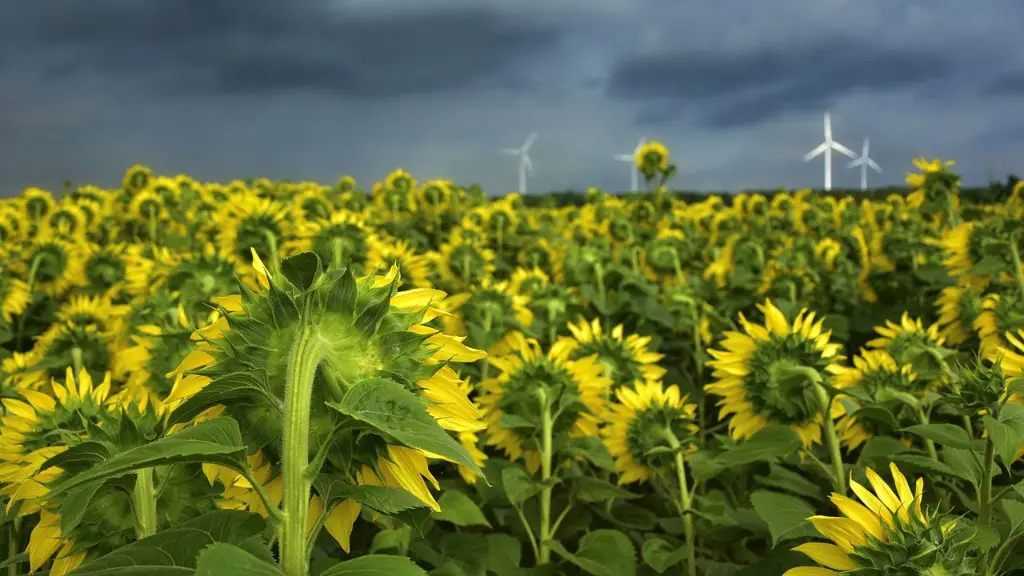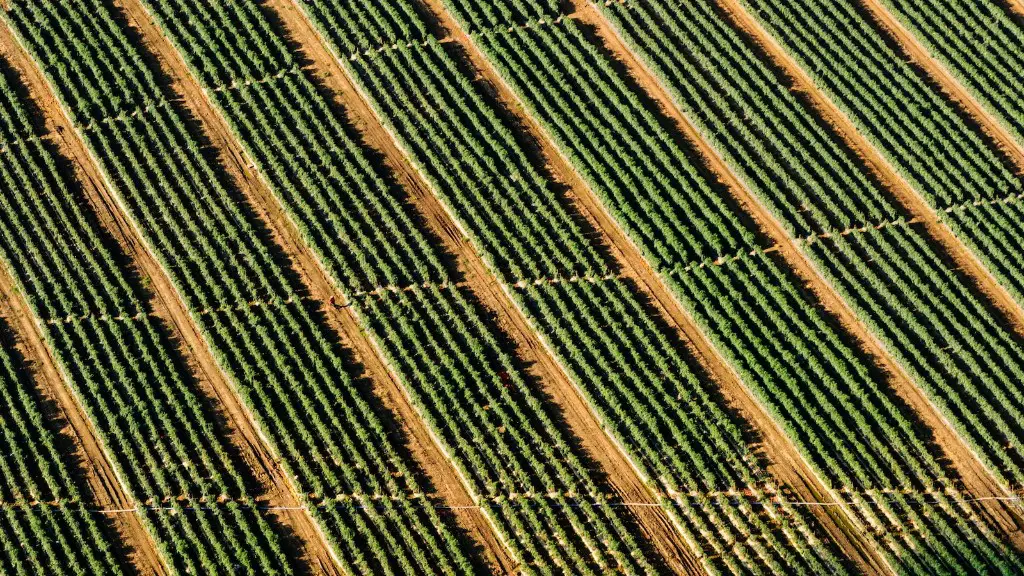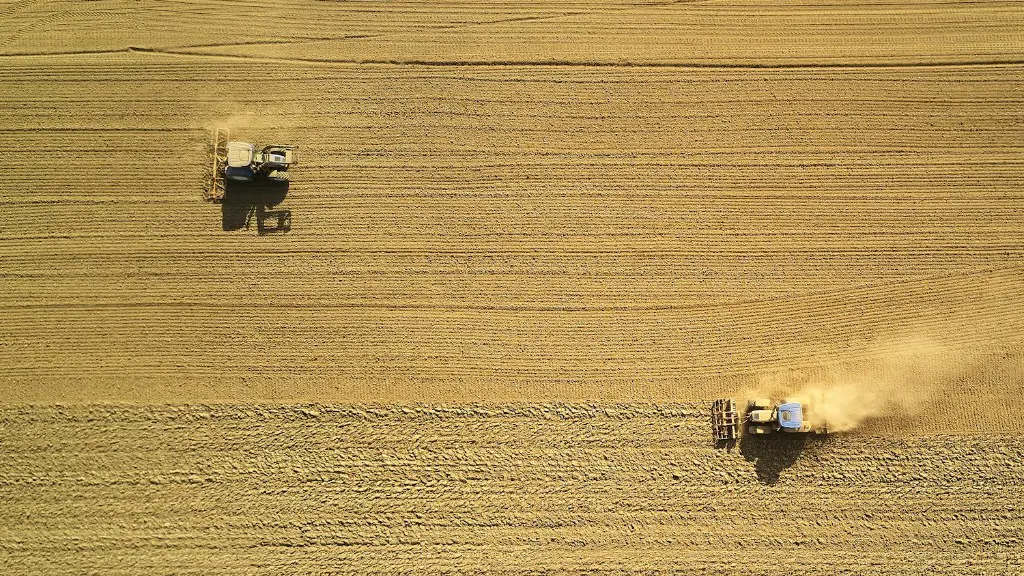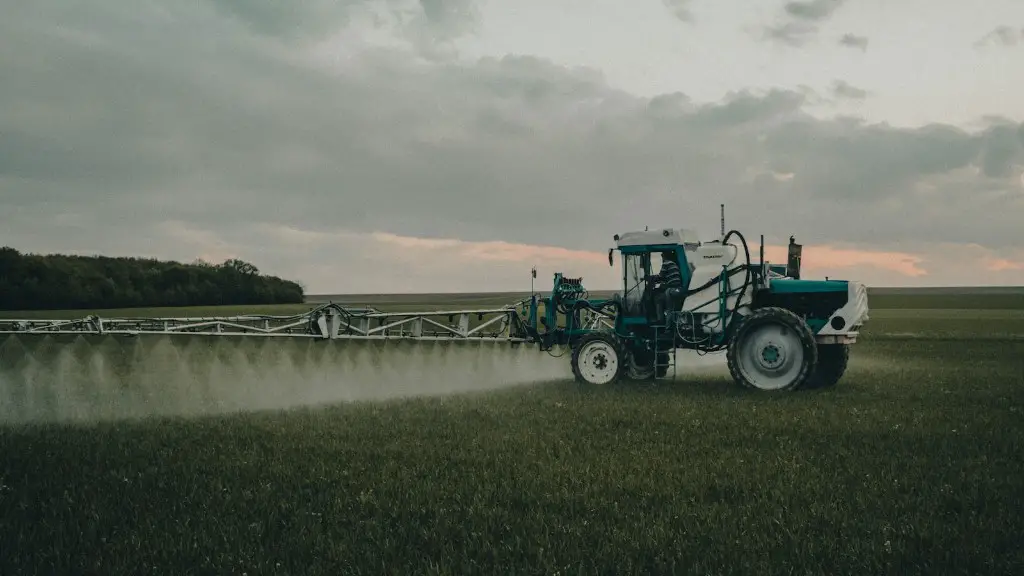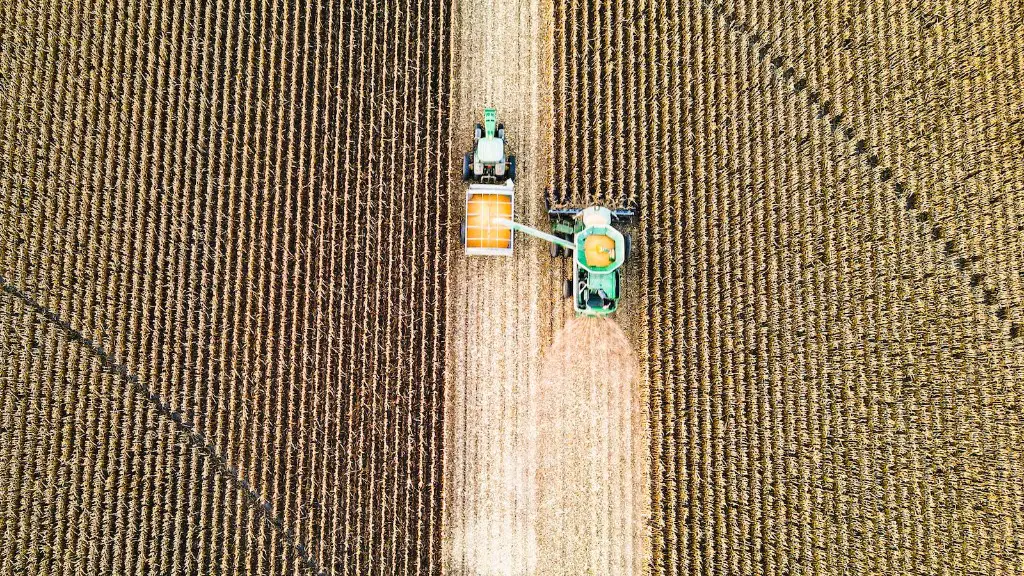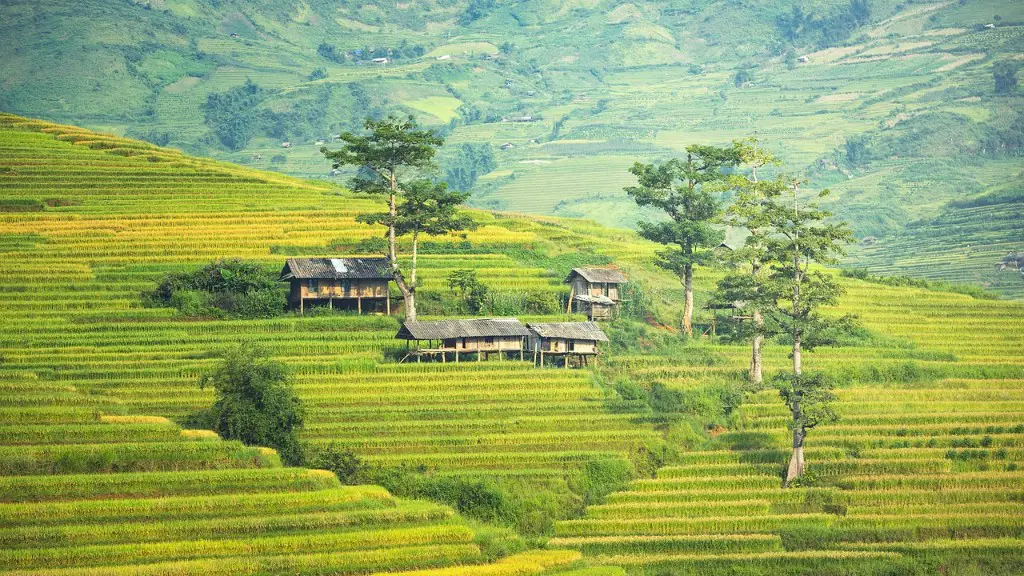The role of agriculture is to provide food, fuel, fiber, and other products to sustain and enhance human life. Agriculture was the key development in the rise of sedentary human civilization, whereby farming of domesticated species created food surpluses that supported a more dense population, and the growth of cities. Agriculture has played a major role in human history, transforming the way we live and shaping the world we live in today.
In the United States, agriculture is a vital industry that provides food, fiber, and other products for domestic consumption and export. It is also a significant source of employment, with over two million workers engaged in farming, ranching, and forestry.
The agricultural sector contributes to the economy through production, processing, and marketing of agricultural products. It also supports the activity of related industries, such as transportation, storage, and wholesale and retail trade. In addition, agriculture provides environmental benefits, such as soil and water conservation, and can help to preserve open spaces and wildlife habitats.
What is the most important role in agriculture?
It’s the source of our food supply. Arguably the most important aspect of agriculture is that it’s the source of the world’s food supply. No matter where or what you are eating, the ingredients in your meals came from somewhere. All roads lead to agriculture.
Agriculture has been a vital part of human civilization for millennia. It is the art and science of cultivating the soil, growing crops and raising livestock. Agriculture provides most of the world’s food and fabrics. It is a complex and dynamic sector that is constantly evolving. Agricultural research and development is essential to ensure that the sector can continue to meet the needs of a growing population.
What role does agriculture play in the United States
Agriculture is a vital part of the US economy, contributing roughly $1264 trillion to GDP in 2021. This sector comprises a wide range of industries, including farming, food production, and related services.
The output of America’s farms alone accounted for $1647 billion of the total, making up around 07 percent of US GDP. Agriculture is thus a significant contributor to the US economy and plays an important role in supporting the country’s population.
Agriculture plays an important role in the creation of jobs. It is a source of foreign currency for most countries and a diversification of the economy. It also supplies other industries with raw materials.
What are 5 important of agriculture?
Agriculture plays an important role in our lives. It is the main source of food for us and for animals. It is also the source of many other products that we use in our daily lives, such as clothing, paper, and fuel.
Without agriculture, we would not be able to survive. It is one of the most important industries in the world.
Agriculture plays a vital role in the economic growth and development of a country. It is the backbone of the economy and the main source of food and raw materials. Agriculture contributes to the Gross Domestic Product (GDP) and provides employment to a large section of the population. It also helps in the development of other sectors of the economy such as industry and tourism.
What are benefits of agriculture?
The agriculture industry is a vital part of many economies around the world, providing raw materials for other industries such as food, shelter, and clothing. Crops for food, silk for cloth, and wood for shelter all come from agriculture, making it an essential part of human survival.
The agriculture industry is responsible for producing most of the world’s food and fabrics. Agriculture impacts so many things that it’s hard to imagine a world without this important industry. If you don’t think agriculture impacts your life, think again. Agriculture is responsible for the food we eat, the clothes we wear, and thecosystems we rely on.
What are the impacts of agriculture to the society
Agriculture globally is putting more pressure on land and water resources which often causes land degradation like soil erosion and salinization. It is also associated with greenhouse gas emissions.
Agriculture is essential for the development of civilizations and stable economies. Without agriculture, cities, stock markets, banks, universities, churches, and armies would not be possible. Agriculture provides the food and resources that are necessary for the growth and prosperity of societies.
Why agriculture is the backbone of our economy?
The agricultural sector is the backbone of the economy. It is the foundation for food and nutrition security and provides raw materials for industrialization. The sector plays a vital role in poverty reduction and economic growth. The sector employs a large chunk of the workforce and contributes significantly to the GDP. The growth of the agricultural sector is essential for the overall development of the economy.
Agriculture can help reduce poverty, raise incomes and improve food security for 80% of the world’s poor, who live in rural areas and work mainly in farming. The World Bank Group is a leading financier of agriculture, with a commitment to supporting smallholder farmers and improving rural livelihoods. We are working to increase agricultural productivity, connect smallholders to markets, and build resilience to shocks.
Why is agriculture important to our community
Community agriculture is a great way to get people involved in environmental protection and activism. It can also help reduce stormwater runoff and air pollution, and increase biodiversity and species habitat. This is a great way to get people of all ages involved in protecting the environment.
There is a growing body of evidence highlighting the importance of sustainable agriculture for meeting the needs of a sharply rising population. In addition to producing sufficient food, sustainable agriculture systems can help protect the environment and expand the natural resources supply. Furthermore, sustainable agriculture can help sustain the economic viability of agriculture systems.
How does agriculture change people’s lives?
The close connection between the rise of settled societies and an increase in population is one of the most important aspects of early human history. When early humans began farming, they were able to produce enough food that they no longer had to migrate to their food source. This meant they could build permanent structures, and develop villages, towns, and eventually even cities. The increase in population that followed allowed for the growth of civilizations and the development of cultures and religions.
Approximately 10,000 years ago, agricultural communities began to develop when humans started to domesticate plants and animals. With domestication, families and larger groups were able to establish communities and move from a nomadic hunter-gatherer lifestyle to one that was based on agriculture for survival. This transition allowed for the development of civilizations and the advance of human knowledge and understanding.
Final Words
The role of agriculture is to provide food, fiber, and other products to sustain and support human life. Agriculture plays a vital role in the global economy and is a major source of employment for people around the world.
The role of agriculture is to provide food, fiber, and other products to people all over the world. Agriculture plays a vital role in the economy, providing jobs for millions of people. In addition, agriculture helps to protect the environment by providing a buffer between developed areas and natural habitats.
